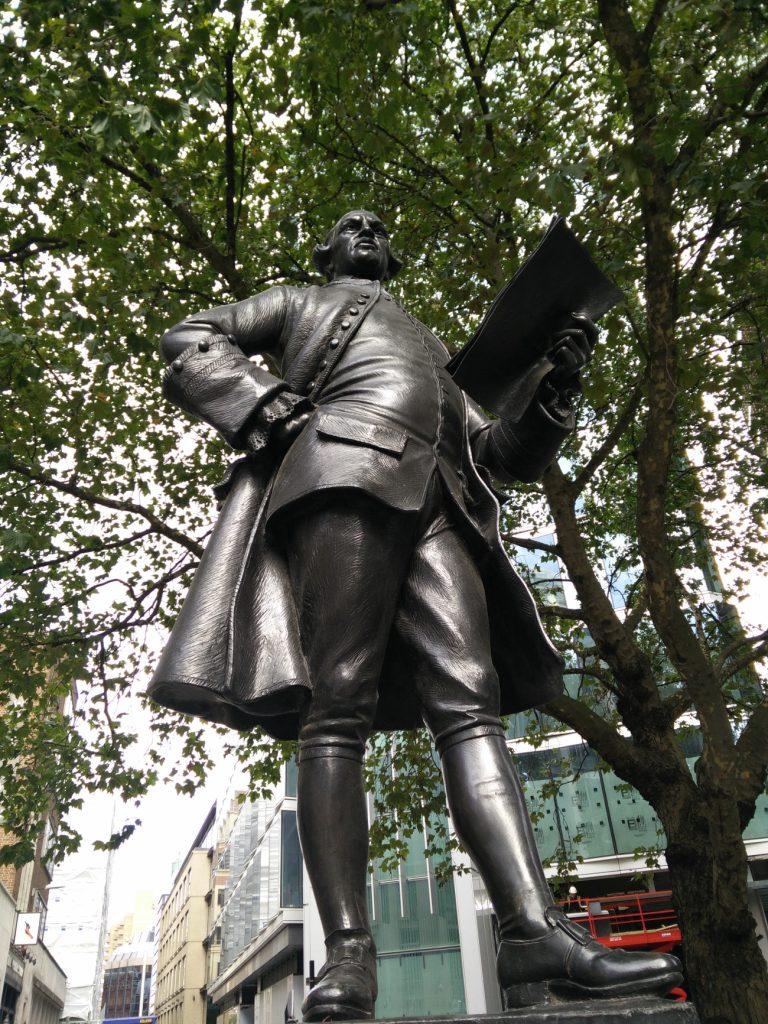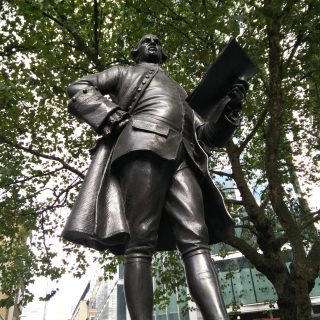Ruqayyah Siddiqui was one of 21 winners of the #exploringthelaw induction activity. All 28 tutorial groups from LLB1 hit the pavements around City to find buildings with legal links on one of 8 trails. They needed to work together to locate the sites, do some research and then independently write a post on something that had made them think on their travels.
Imagine a society without change. And that’s just it, I cannot and never will be able to imagine such a society. And that is what makes society so extraordinary, that a precondition for its existence must be change. I believe it is within our human nature to change, which is quite ironic actually because we all shiver just by hearing the word. But for me, this word means progress, it means to evolve and better ourselves. I always question society around me and a question that is not easily answered by people and by myself is in regards to inequality; why do some people flourish more than others? And some might easily answer this question by presenting a few factors that influence this to occur but without realising the importance of inequality. I believe inequality is present for purpose, to create a drive to progress. Being at the bottom of this hierarchal society does not have to be such a bad thing; if we hit rock bottom, our only escape is to work our way upwards and that is progress, that is change, that is transformation. This is not to justify inequality in any way, but when we analyse society, and the laws created to regulate behaviour, we should know that in an evolving society, inequality will not last.

A man that knows no change, to me is known as the motionless man, standing tall on Fetter Lane. He is what you might call a statue, but I much rather prefer this term; a motionless man. Looking at this motionless man made me realise something profound; that a hierarchy in society can potentially benefit those at the bottom.
This motionless man acts as a metaphor, illustrating the difference between people at the top of society, like himself and those labelled as ‘disadvantaged’, placed at the bottom. I think, as a collective, society places stigma on those that are from working class or lower income backgrounds to such an extent that we become embarrassed by our position.
But if there is one thing I want to emphasise, let it be that we should all embrace our current position especially if we are placed in the lowest place because it is our foundations that create our values and our values create change through laws. Maybe another way to look at this is that those successful figures at the top of this hierarchy will experience no progress and just like the motionless man placed on Fetter Lane, they will not be changing internally and evolving. So what are the benefits of being such a powerful figure? Well, there are still so many to count, but I am certain that my position at the lowest point on the hierarchy is exactly how I like it and want it to be. I can experience progress and transformation and the inequality that I face in this current society just increases my determination to strive. So this motionless man has become a metaphor for the elite few; that they too by sitting and watching at the top are motionless, which is unhelpful in a constantly evolving society.
If there is one thing that we, not only as individuals but as a collective should do, is to crave change because where is up if you are already there? And I decided to study law for change, to make a difference, a positive impact. So why are you so scared of change? Without change, we become stationary; we can be exploited by those with power. But with change, we become mobile and gain control. Thus, we should be flourishing, in our own way, and believe me we can still flourish when we hit rock bottom.
*If you’re interested in the background of Ruqayyah’s ‘motionless man’ there’s some background via the Encyclopaedia Britannica site.

